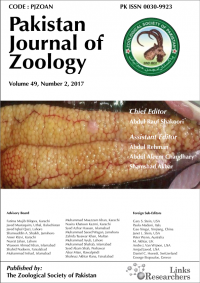1Anatomy Department, Ziauddin University, Clifton, Karachi
2Biochemistry Department, Ziauddin University, Clifton, Karachi
3Anatomy Department, Liaquat National Medical College, Stadium Road, Karachi
4Anatomy Department, Shaheed Mohtarma Benazir Bhutto Medical University, Larkana
ABSTRACT
Among Asian population at present, we comparatively acquire less information associated with breast cancer risk factors. This study has analyzed the data gathered from two-renowned tertiary health care centers targeting a large subpopulation of Karachi. This will greatly help in determining the most prevalent risk factors as well as the clinical findings of breast cancer lung metastatic females among the target population. This comparative cross-sectional study which is aimed to determine the risk factors associated with breast cancer such as patient’s demographic profile as well as reproductive risk factors. Moreover, we have also analyzed the clinical data of our study subjects based on which they were diagnosed as well as treated. Total n = 175 breast cancer cases were recruited in this study, out of which 121 (69.2%) patients were untreated (Group A). The remaining 54 (30.8%) patients, who received cancer treatment as adjuvant therapy, were included as treated (Group B) cases. Regarding patient’s demographic data, mean age of enrolled patients was found to be 48.26±10.74 years. The mean age of menarche was found to be 13.39±0.89 years. The calculated BMI (body mass index) was found to be 20.4. Majority of the enrolled subjects have acquired primary or basic education and most of them were married and housewives. For the reproductive risk factors of breast cancer, majority gave no history of contraceptive usage. Also, most of the females have three children or more with the history of breast feeding. It was concluded that, lack of education combine with low socioeconomic status, which further aggravates the health outcomes especially by neglecting the early diagnosis of the disease. Also, higher risk was observed for married women, housewives with extended family that is 3 or more children. Breast feeding for extended duration (at least 2 years) and less age at first childbirth were observed as protective factors for this cancer. Also, majority of our study subjects were diagnosed at late stages of cancer (stage III and stage IV). Therefore, early detection will not only cure the breast cancer patients but also prevent them undergoing painful circumstances.
To share on other social networks, click on any
share button. What are these?









